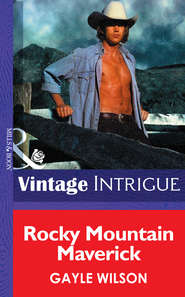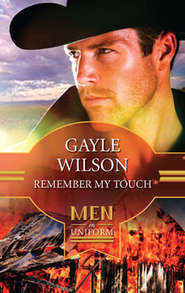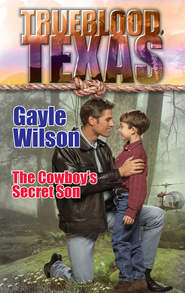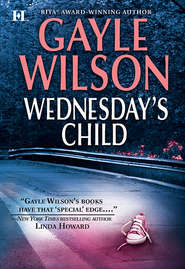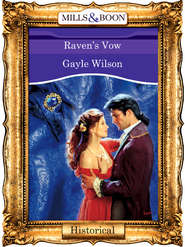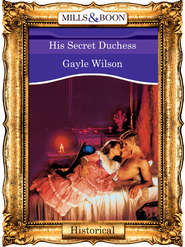По всем вопросам обращайтесь на: info@litportal.ru
(©) 2003-2024.
✖
Bogeyman
Автор
Год написания книги
2018
Настройки чтения
Размер шрифта
Высота строк
Поля
“I don’t know whether or not she says more the longer the dreams go on or whether I understand more each time. Most of it is just…sounds. Screams. No words. But at the very beginning…Before she gets so hysterical…There are words.”
“What does she say?”
“Help me. Mama, help me. Daddy. No. Daddy.”
“If she’s calling for her daddy, then maybe—I mean didn’t that psychologist tell you this was connected to John’s death?”
“Not exactly. She said the stress of his death combined with the stress of the move. But…a four-year-old? How she can be stressed?” Blythe asked. “Does she seem stressed to you?”
“She’s just having a nightmare, baby. Everybody has them.”
“But what does she see that terrifies her so much she can’t get her breath?”
“And she’s crying when she says all that?”
As she asked the question, Delores set a glass dessert plate down in front of Blythe. A thick slice of pound cake, the promised sad streak bisecting its perfection, rested in the center on a paper doily. Despite the presentation, Blythe felt a wave of nausea at the thought of trying to eat it.
“Is she crying? A little. At first. Then she starts begging for somebody to help her. Then…‘Please, Jesus, help me,’” Blythe whispered, her eyes holding on the black ones of her grandmother’s housekeeper.
“That pure don’t sound like it’s got nothing to do with Mr. John, whatever that doctor told you. That baby’s afraid of something.”
Blythe nodded, relieved to have her own conclusion put into words. To find someone who understood the fear she felt as the episodes escalated. “She’s terrified. After a while the words become screams. Shrieks. As if someone is—”
“Hurting her,” Delores finished softly when she couldn’t go on.
“Nobody’s ever hurt that child in her life,” her grandmother said dismissively. “Why in the world would she have a dream about somebody doing it?”
“Dreams ain’t always because of something that’s happened to us. Dreams are sometimes more than what we know in our heads.”
“Don’t you start that nonsense, Delores. Not in this house. We’re Christians here.”
“I’m just as good a Christian as you, Miz Ruth. That doesn’t mean I don’t know things they don’t talk about in Sunday school. Mine or yours.”
Maybe if she hadn’t already crossed this line in her own imagination, Blythe might have ignored the housekeeper’s theory. Some indefinable something about the words and phrases the little girl uttered—something Blythe couldn’t explain to anyone who hadn’t heard them night after night—had already led her to the conclusion that whatever was happening in her dreams might not be happening to her daughter.
“What kind of things?” she asked.
The two old women, squared off for a religious battle they had probably fought a dozen times through the long years of their acquaintance, turned to look at her. Their faces indicated surprise, either over the interruption or her question itself, so she repeated it.
“What kinds of things do you know about dreams, Delores?”
“She don’t know nothing that the rest of us don’t know,” Ruth said. “Dreams are dreams. That’s all they are. Everybody has ’em. Sometimes they scare us, but that don’t mean we have cause to be scared.”
“That angel’s been dreaming the same thing since you all moved down here.” Delores ignored her mistress’s comments as if they were unworthy of a response. “Is that right?”
Blythe nodded and watched the old woman’s lips tighten.
“And she didn’t ever dream this before?” Delores went on. “Or anything like it?”
“I don’t think Maddie has cried out in her sleep since she was a baby. Certainly nothing like this. And believe me, I’d remember. I swear,” she said, turning to her grandmother in an attempt to convince her of how out of the norm this was, “it sounds as if someone’s killing her.”
Despite the opinion she’d just stated so adamantly, her grandmother’s brow furrowed in quick sympathy. She reached across the table to lay her hand over Blythe’s. “Oh, child.”
“I don’t know what to do,” Blythe went on, speaking hurriedly, trying to get the words out before the force of the emotions she’d kept hidden for almost two months overwhelmed her. “I can’t believe this is about losing her daddy. Why would that start now, almost a year later? Why not immediately after his death? And don’t tell me she’s upset about the move. She seems happier here than she has been since John died.”
Her grandmother’s eyes had filled with tears of love and sympathy as she’d talked. Her fingers closed tightly around Blythe’s, adding their own silent comfort. “I don’t have any answers for you, sweetheart. I don’t even know where to tell you to go for answers. Maybe if you took Maddie back to that doctor in Montgomery—”
Blythe shook her head, not bothering to explain the dismissive attitude of the psychologist or her loss of faith in her advice. At first Blythe had attempted to obey her dictate not to try to wake Maddie, but the terrors had seemed to intensify as well as increase in frequency. And if something unnatural was going on at the house to cause them…
Once more the question hovered on the tip of her tongue. Ruth and Delores had lived in this town for more than eighty years. If that house had a history of violence or death, they would know about it.
Are you seriously considering asking them if the house you’re living in could be haunted?
Blythe pressed her lips together instead, knowing how much a question like that would worry her grandmother. In Ruth Mitchell’s world, when people died, they went to heaven or to hell. They didn’t hang around knocking on windows or causing little girls to have nightmares.
Besides, if Blythe really wanted to know what had happened at the place she was renting, there were other ways to go about it. Ways that wouldn’t alarm anyone or make them question her sanity. Something she was doing quite nicely, thank you, all on her own.
4
Ada Pringle had been the librarian in Crenshaw since Blythe was a child. Despite the more than fifteen years since Blythe had seen her, the woman had changed very little.
Her hair and penciled brows were still coal-black, which made Blythe realize that the former had probably been dyed even then. And Ada’s eyes still peered disapprovingly at her over the top of a pair of tortoiseshell half glasses.
Although the library was deserted at this time of the afternoon, the effect of that look was the same as when Blythe had been twelve and asking for help to find information needed for school. As if she had no right to pester Miss Ada with a request for service.
“Good afternoon, Miss Pringle.”
“Blythe Mitchell, as I live and breathe. Heard you was back.”
Blythe waited, expecting the conventional welcome-home comments. None were forthcoming.
“For almost two months now,” she said with a smile.
“Not living at your grandmother’s, I hear.”
“Well, there’s moving home, and then there’s moving home.” It was quickly obvious her attempt at humor had fallen flat. There had been no change in the brown eyes. “We decided to get our own place.”
“Heard you have a little girl.”
“Maddie. She’s four. I’ve been meaning to bring her by. She loves books as much as I did when I was that age.”
“Children ain’t allowed till they start school. Same as it’s always been,” Ada said. “Now what can I do for you?”
Blythe suddenly remembered why, voracious reader that she had always been, she hadn’t enjoyed coming here. And if there were any other option for what she needed, she would be tempted to walk out now.
“As I remember, you have bound copies of the Herald.”
The Crenshaw Herald was a weekly, but it was the only game in town. Most of its pages were devoted to church and club activities and athletic events at the school. The editor had always thoughtfully included anything newsworthy that had happened between issues, although it was probable that everyone might already know all the details through the ever-efficient community grapevine.






